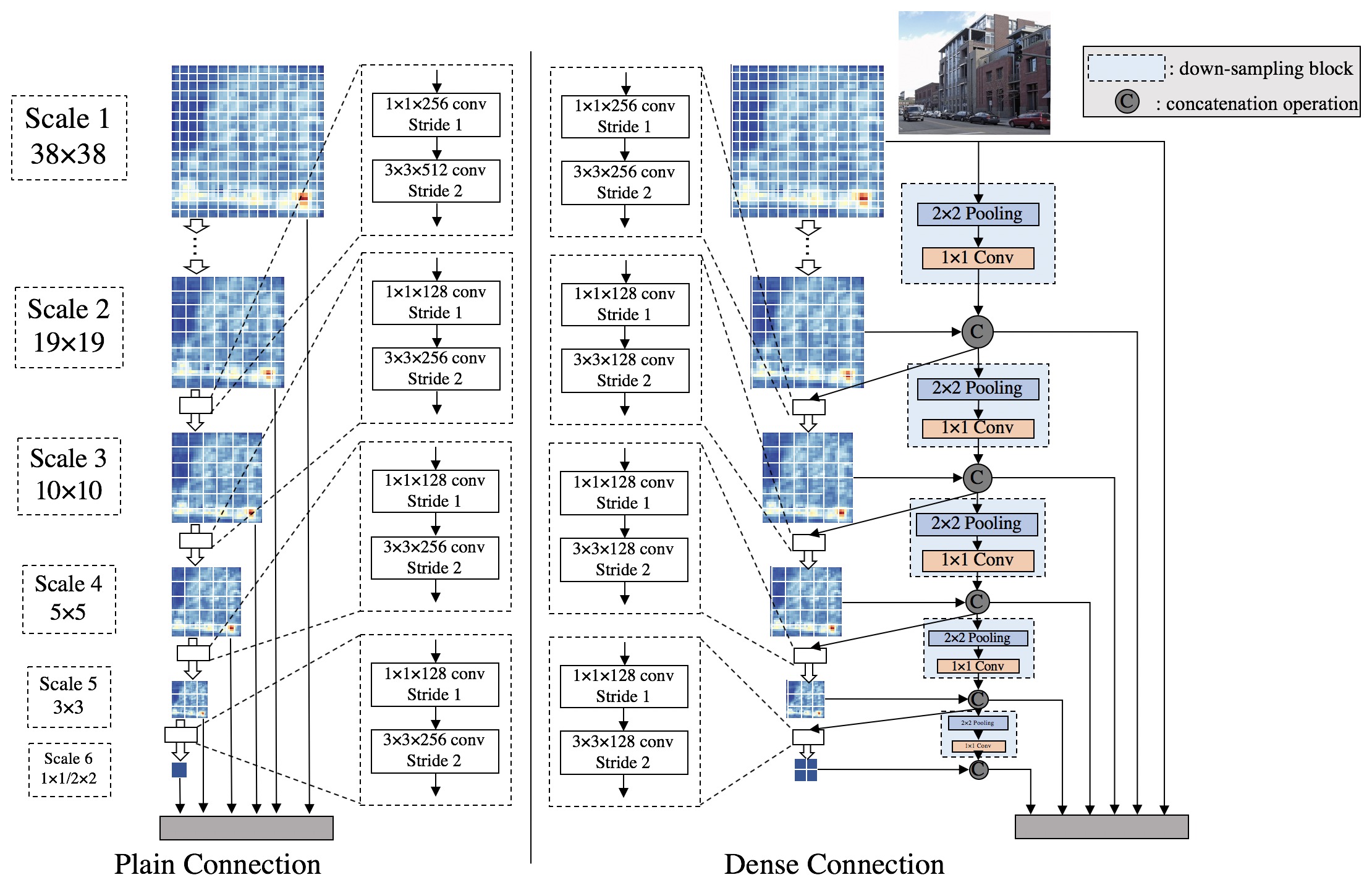Object Detection from Scratch with Deep Supervision
We propose Deeply Supervised Object Detectors (DSOD), an object detection framework that can be trained from scratch. Recent advances in object detection heavily depend on the off-the-shelf models pre-trained on large-scale classification datasets like ImageNet and OpenImage. However, one problem is that adopting pre-trained models from classification to detection task may incur learning bias due to the different objective function and diverse distributions of object categories. Techniques like fine-tuning on detection task could alleviate this issue to some extent but are still not fundamental. Furthermore, transferring these pre-trained models across discrepant domains will be more difficult (e.g., from RGB to depth images). Thus, a better solution to handle these critical problems is to train object detectors from scratch, which motivates our proposed method. Previous efforts on this direction mainly failed by reasons of the limited training data and naive backbone network structures for object detection. In DSOD, we contribute a set of design principles for learning object detectors from scratch. One of the key principles is the deep supervision, enabled by layer-wise dense connections in both backbone networks and prediction layers, plays a critical role in learning good detectors from scratch. After involving several other principles, we build our DSOD based on the single-shot detection framework (SSD). We evaluate our method on PASCAL VOC 2007, 2012 and COCO datasets. DSOD achieves consistently better results than the state-of-the-art methods with much more compact models. Specifically, DSOD outperforms baseline method SSD on all three benchmarks, while requiring only 1/2 parameters. We also observe that DSOD can achieve comparable/slightly better results than Mask RCNN + FPN (under similar input size) with only 1/3 parameters, using no extra data or pre-trained models.
PDF Abstract




 ImageNet
ImageNet
 MS COCO
MS COCO
 ssd
ssd